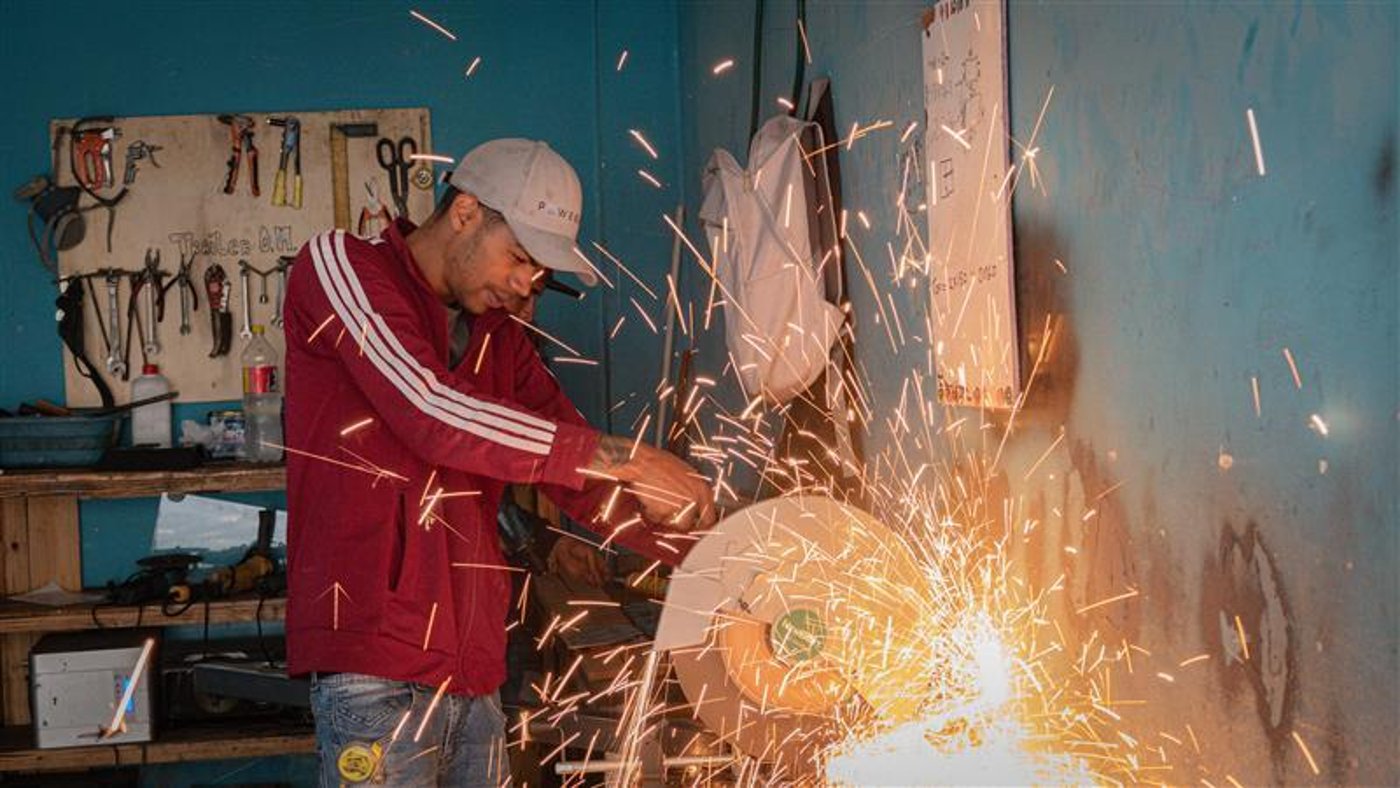On World Refugee Day, NRC calls on all economic sectors in the country, the Ministry of Foreign Affairs, and the Ministry of Education to continue recognising the immense potential of young refugees and migrants. We call on government institutions and the private sector to boost their commitment and investment in the economic integration of young refugees and migrants.
“Colombia currently hosts the third-largest number of refugees globally. It is crucial that the country's solidarity and generosity translate into real opportunities for young people to find economic stability. This will allow them not only to secure employment but also to build dignified and productive lives,” said Giovanni Rizzo, NRC's Country Director in Colombia.
A survey conducted for this report involved 200 young people in central Colombia, specifically in Bogotá, Mosquera, and Soacha. It found that discrimination, xenophobia, limited educational opportunities, and the difficulty in having their qualifications officially recognised in the country are the main barriers preventing them from accessing work or entrepreneurship.
30 out of 100 young refugees and migrants feel their nationality leads to exclusion from employment. Furthermore, 40 out of 100 state they cannot practise their professions or technical studies because they cannot find ways to continue their education or validate their qualifications in the country. This situation limits the economic integration of refugees and migrants, and represents a significant loss of valuable human capital.
"The barriers between young refugees and migrants and employment are not insurmountable. We have proposed that public institutions and private companies introduce anonymised CVs in their selection processes. This would mean excluding personal details that could cause bias, such as an applicant's nationality, age, or home address. The objective is for recruitment to focus purely on young people's skills and qualifications," said Rizzo.
Based on the survey results, young people have a clear vision of what they're looking for: job stability, acceptable pay, and access to social security. However, a lack of experience, low wages, or insufficient technical training are obstacles that prevent them from accessing decent work. Young refugees and migrants surveyed also feel discriminated against due to their age.
"Young refugees and migrants are given manual labour jobs – carrying sand, lifting heavy things. It's almost always gruelling work for them because they're migrants. You'll find them in informal roles, begging for coins, sweeping, or selling items on the street," said a young migrant from Soacha, who was interviewed for this report.
It's crucial that government institutions listen and take action. The survey reveals that almost half of young people don't feel heard by public institutions, and 40 out of 100 lack access to information about employment or entrepreneurship support. This gap in information and dialogue is an opportunity that can be leveraged to build bridges towards economic inclusion.
Despite the identified barriers, the World Bank has shared that, in Colombia, migrant integration generates double the fiscal return. This is an encouraging figure that reflects the positive impact of integrating refugees and migrants into the country's economy.
"On World Refugee Day, we cannot simply watch as talent that could drive the economy is held back by barriers we can resolve. All these young people need every sector of the economy to invest in their future. They are a vital force, ready to contribute to the country's economy and positively transform their own lives," said Rizzo.
Notes to Editors
- The Norwegian Refugee Council's report was produced with the Tiempo de Juego Foundation, and with the active participation and leadership of young migrants and their host communities.
- The report was made possible thanks to funding from the Hilton Foundation; however, the text, findings, conclusions, and recommendations presented are the sole responsibility of the NRC and do not reflect the position of the Hilton Foundation.
- For this report, 200 young refugees, migrants, and persons of their host communities under the age of 28 were interviewed in Bogotá, Mosquera, and Soacha, Central Colombia, during the first half of 2024. Interviews and focus groups were conducted to better understand the context and perceptions of young people.
- For more information on the report, please follow this link (only available in Spanish).
- More than 80% of respondents live in vulnerable situations or with limited economic resources. While this reality is challenging, it underscores the need to implement innovative and collaborative solutions.
- According to the report, "30% of young refugees and migrants surveyed believe their place of origin causes exclusion from employment, and 42.1% feel they cannot work in their professional fields. This impacts the continuity of their life plans and their opportunities in their displacement situation. Furthermore, 44% have children or are caregivers, which can motivate them to seek employment but also limit their educational and job opportunities."
- According to the report, "66.5% of young refugees, migrants, and their host community in Colombia see the role of government entities as fundamental in creating opportunities. However, 45% do not feel heard by these institutions. Furthermore, 39% lack information about organisations that support employability and entrepreneurship, which aggravates their situation."
- According to UNHCR's Global Trends report (published in June 2025), Colombia is the third country with the largest number of refugees worldwide. The country hosts 2.8 million Venezuelans (UNHCR).
- According to the World Bank, migrant integration generates double the fiscal return in Colombia (World Bank).
For more information or to arrange an interview, please contact:
- NRC global media hotline: media@nrc.no, +47 905 62 329
- Ana Milena Ayala Sanchez, advocacy and communication officer in Colombia: ana.ayala@nrc.no. +57 3232746021


